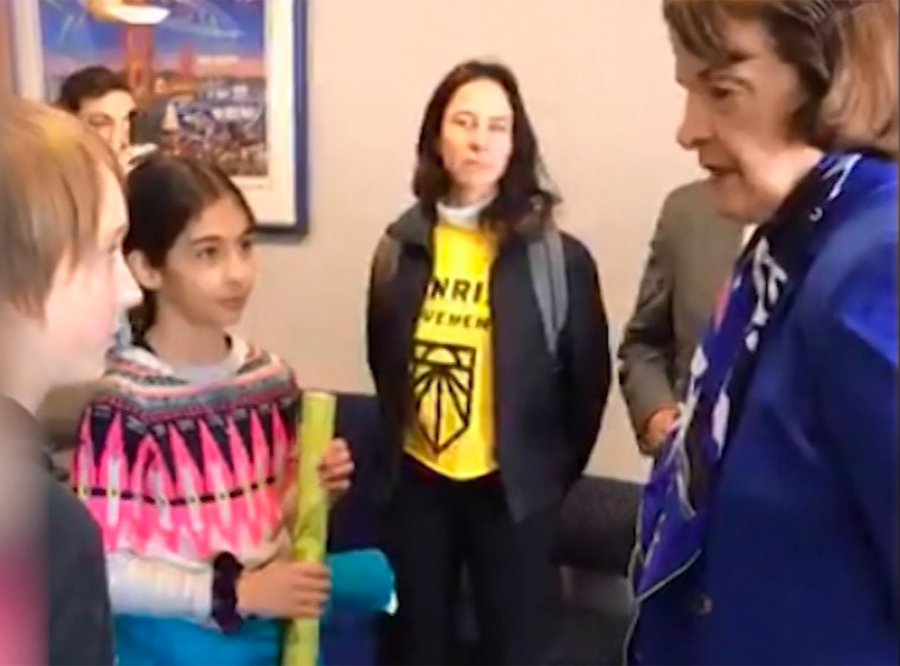Staff Editorial: Minors Have a Major Impact in Politics
Senator Feinstein addresses the youth supporting the Green New Deal.
In a recent viral video, Senator Dianne Feinstein of California addressed a group of child lobbyists ranging from elementary to high school age who had come to ask her to vote “yes” on Alexandria Ocasio-Cortez’s Green New Deal. Instead of listening to what the children had to say, she ignored their requests and tried to give them a lesson in politics.
“I’ve been doing this for 30 years,” Senator Feinstein said. “I know what I’m doing. You come in here and you say, ‘It has to be my way or the highway.’ I don’t respond to that.”
Throughout her interaction with the children, Senator Feinstein told them to “listen.” She wanted the children to listen to the Republicans on the other side and to listen to her speak about her experience because that’s how you get things done. When she was telling them to “listen,” however, she was also interrupting their presentation and their time to talk.
Instead, she should be the one listening to her constituents and future voters, instead of impeding on their ability to share their own opinions. She clearly did not view the youth in her office as her equals, and she exhibited a high level of hypocrisy.
In general, politicians should understand that their choices influence more than just their voters. When they vote to pass or fail a law, children, nonvoters, members from the other party, felons, pets, the environment, and international citizens are affected. Serving as a representative does not always mean serving your voters only, but serving the people that live in your area or district. Non-voting constituents are still constituents.
Activism is one of the few voices given to children under the age of 18. It is the driving force behind political change, so Senator Feinstein should not be so quick to dismiss it the way she did. The voices of the young generations matter. Who else will be the future movers and shakers, if not them?
Children do not have a choice to vote, and representatives, like Senator Feinstein, cannot assume that their interests are being represented by their parents. When children aren’t represented in the electorate, it is important to take their opinions and voice into account. These five-year-olds, ten-year-olds, and 15 year-olds are your future voters, and if you do not allow them to speak now, they will not vote for you in the future. The future is theirs, after all, not Senator Feinstein’s.
To watch the complete video, use the link below:
http://alturl.com/388vu


